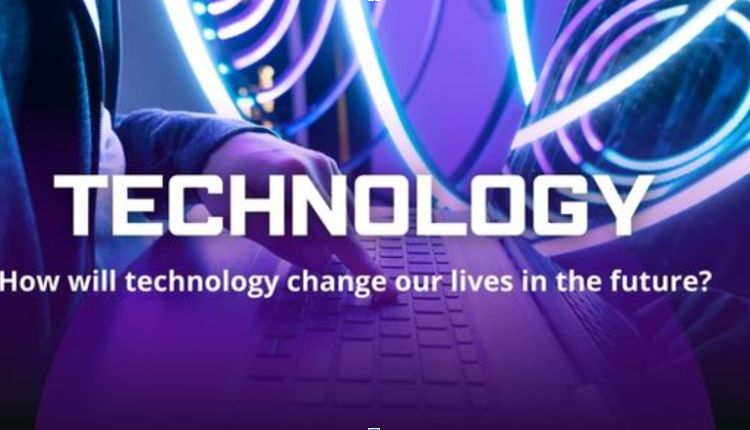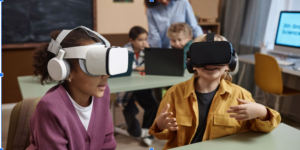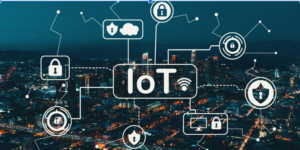
technology
In this fast-paced world, technological advancements have permeated our daily lives, leaving an undeniable impact on various facets of our existence. The advancements in technologies have revolutionized the way we work, communicate, and access information. It is crucial to stay abreast of the latest trends and shifts that have transformed our landscape is of paramount importance. In this article, we will explore the newest technologies and cutting-edge approaches that are reshaping our society.
-
Technology is changing Ecommerce significantly
Technology is transforming ecommerce, from AI-driven personalization to innovative payment solutions
-
AI solutions for Ecommerce

AI plays an important role in enhancing the eCommerce landscape, particularly in customer service. AI solutions, such as chatbots, help solve customers’ problems, respond to inquiries, and provide guidance seamlessly. Additionally, AI can be integrated into eCommerce platforms to enhance the payment experience and prevent fraud during transactions. Many retailers integrate AI into e-commerce platforms to streamline the payment experience, prevent fraud and ensure secure transactions. AI is also used to analyze data and create smart virtual showcases that suggest products to customers, simplifying the purchase journey and increasing conversion rates.
(AI chatbots help provide instant, personalized support and efficient issue resolution)
-
AR and VR Technologies in Ecommerce
Augmented Reality (AR) and Virtual Reality (VR) are changing how customers interact with eCommerce products. Many retailers are incorporating AR and VR into eCommerce platforms, enabling customers to visualize products in 3D and virtually try on clothes in their own space before making a purchase. This not only enhances the shopping experience but also reduces product returns.

Technology promises to elevate eCommerce to new heights, with each innovation designed to make shopping more seamless and enjoyable.
-
How Technology Will Transform Healthcare in the Future?
Healthcare changes dramatically because of technological developments. Technology is transforming healthcare in numerous ways:
-
Using AI in Medical Diagnosis and Treatment
AI helps humans analyze large datasets for researching various diseases and treatment options. Additionally, they aid in developing new drugs and treatments and diagnosing complex conditions more efficiently. As AI tools continue to evolve, their potential in reading medical images, X-rays, and scans to diagnose medical problems is becoming increasingly popular. In the coming years, AI tools may automate more of the work done by clinicians and staff members.

-
VR and AR Technologies in Healthcare
AR and VR are revolutionizing healthcare, from diagnosis to treatment, by transforming doctor-patient interactions and advancing medical education. The integration of AR and VR into surgical training marks a major shift in medical education, allowing surgeons to immerse themselves in hyper-realistic simulations. Continuous advancements in AR and MR devices have the potential to greatly enhance healthcare by providing detailed, accurate patient information and improving patient care, medical education, training, and collaboration.
-
Telemedicine (Remote Medical Consultations)
Telemedicine is the practice of delivering medical care remotely. Thanks to technology, patients can receive doctors’ advice through electronic audio and visual communication without needing to meet in person. Individuals with non-emergency medical concerns can get benefits from the convenience of telemedicine, which reduces waiting times and expands access to high-quality medical diagnosis and treatment. Additionally, telemedicine offers a cost-effective approach to medical examinations, requiring only a webcam and a secure patient portal. This portal seamlessly connects doctors to a protected electronic medical record database accessible online.

(Telemedicine allows patients to access medical care remotely)
-
Technology in Education: The changing Landscape of Learning
-
Rise of Augmented and Virtual Reality
Both VR and AR provide new and valuable perspectives for learning that enhance student experiences. These solutions enable teachers and educators to create interactive learning environments that simulate real-world events and circumstances. Using VR headsets, learners can engage directly with immersive environments, while augmented reality integrates virtual elements into the physical world, allowing students to interact with virtual representations of concepts. This approach has been shown to help students learn and retain new information more effectively.
(Using AR and VR in education can make learning more engaging and interactive)
-
Using AI in teaching and learning
AI in education streamlines various tasks, making learning more engaging and efficient. It helps teachers create smart content that encourages student participation in lessons. AI can also grade tests, check homework, create presentations, and handle administrative tasks. By automating routine activities, AI enhances the learning environment, making it more productive and knowledge-driven. Additionally, students can use AI chatbots for assignment reminders, solving math problems, answering questions, and receiving valuable feedback. As we progress into a more advanced society, AI solutions will harness vast data sets through sophisticated algorithms, offering personalized and adaptive learning experiences. AI will undoubtedly boost student engagement by delivering tailored courses, interactive lessons, and gamified classrooms.
-
Technology in Daily Life
-
AI-driven home automation systems
AI is revolutionizing smart homes with advanced technology, offering personalized user experiences by automating home appliances based on data collected from daily activities and habits. AI technology can also protect your home with advanced security such as detect unauthorized activity with the advanced AI-powered cameras. . When unusual movements or suspicious activities are detected, AI promptly notifies the authorities or the homeowner. As AI technology continues to evolve, it will increasingly act as a partner in our daily lives, improving our well-being, simplifying routine tasks, and introducing innovative ways to manage and enjoy our living environments.
-
Internet of Things (IoT)
The Internet of Things, or IoT, has significantly transformed how we live and work. It is a network of interconnected devices that communicate and share data with each other and the cloud. IoT devices range from everyday household items, like smart thermostats, lighting systems, and security cameras, to complex industrial tools. In smart homes, IoT enables homeowners to remotely control appliances, monitor energy use, enhance security, and automate routine tasks through devices like smart thermostats, lighting systems, and security cameras. By simplifying daily tasks and enhancing convenience, IoT empowers people to live and work smarter. Additionally, sectors like shopping, food delivery, transportation, and healthcare are being revolutionized by this advanced technology.
(IoT simplifies life by connecting devices and automating tasks)
-
Technology in Workplace:
AI was developed to replicate and enhance human cognitive functions using advanced technologies. It includes everything from simple tools that help employees work better to advanced robots handling complex tasks. For example, in retail, AI helps retailers manage inventory systems by predicting stock levels and optimizing supply chains. Similarly, in manufacturing, AI monitors equipment performance, enabling predictive maintenance, reducing downtime, and allowing workers to focus on production instead of reactive maintenance tasks. In the future, AI could take on roles that require in-person interaction, critical decision-making, and specialized expertise, further transforming industries.
In summation, the future of technology is full of potential. As technology’s reach expands, it promises to make the world more efficient, connected, and adaptable. While technological advancements also introduced a myriad of challenges that need to be addressed. These challenges encompass ethical considerations, data privacy concerns, and the ongoing need for skill development to keep pace with the rapidly evolving technological landscape. As we move into the next decade, it is essential to remain mindful of technology’s impact on individuals and society as a whole. Through the responsible and ethical utilization of technology, we have the potential to shape a more sustainable and equitable future.







